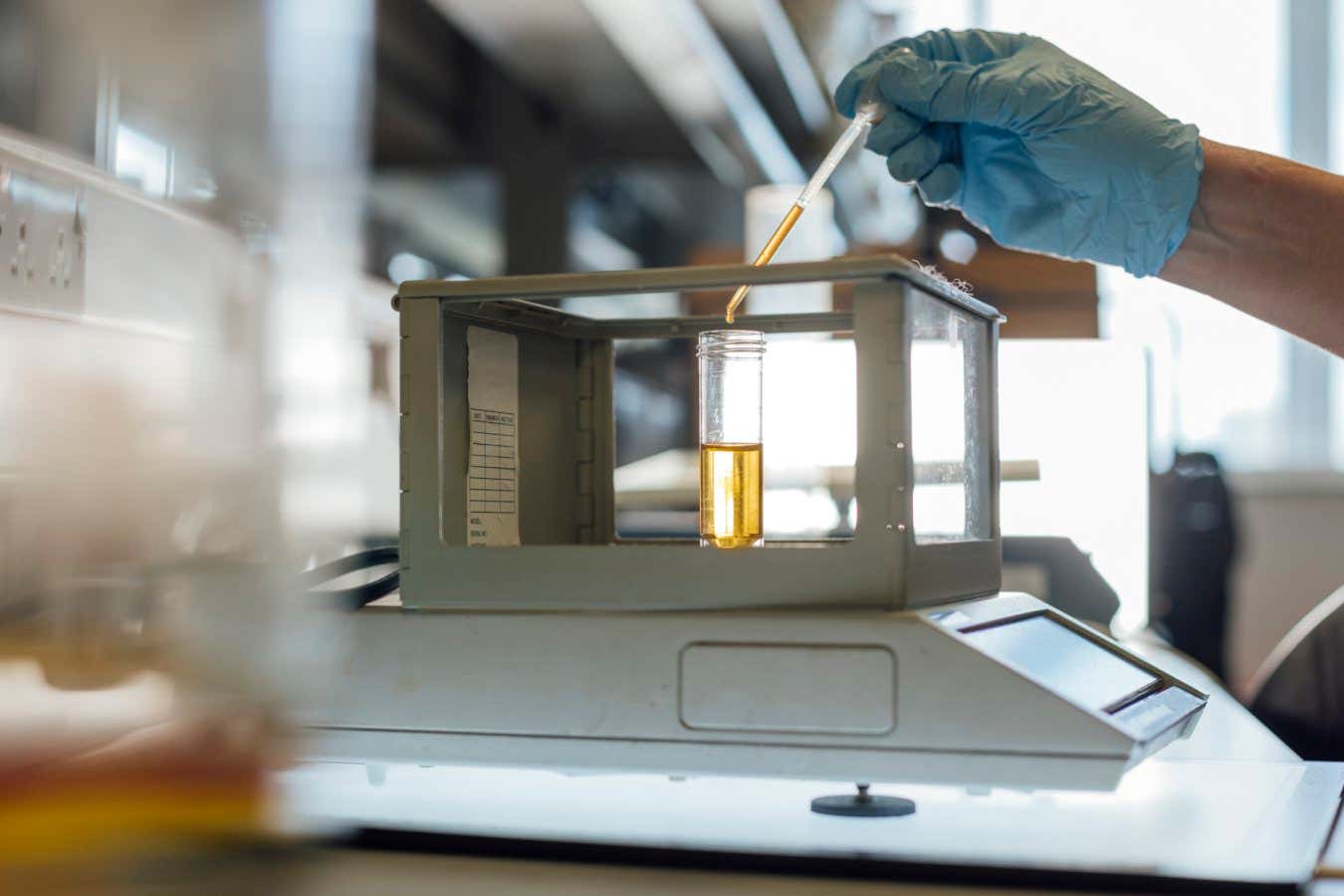Several countries now offer at-home vaginal swabs to detect HPV status in place of traditional cervical cancer screening, but urine tests seem to work just as well
By Elizabeth Hlavinka
28 August 2025
Someone’s cervical cancer risk could be gauged non-invasively by collecting and analysing samples of their urine
SolStock/Getty Images
Urine tests seem to detect strains of the human papillomavirus (HPV) that are particularly associated with cervical cancer with the same level of accuracy as vaginal swabs that people carry out themselves.
Cervical cancer screening has historically been performed by a medical professional collecting cell samples from the cervix, either to test for abnormal cells or for the presence of HPV strains that are responsible for most cases, like HPV 16 and 18.
Read more
We are finally improving prostate cancer diagnoses – here's how
In countries like the US and Canada, people now have the option of using self-collected vaginal swabs, which don’t need to touch the cervix. The UK is also moving towards this approach. Such swabs have been linked to increased screening uptake, but are still invasive and may be uncomfortable for some.
Previous research suggests that the DNA of HPV can be detected in urine. To better understand its screening potential, Julia Lynch at the International Vaccine Institute in Seoul, South Korea, and her colleagues asked 753 sexually active women, aged 18 to 25, to collect a urine sample at any time of day and to carry out a vaginal swab while in a clinical setting in Bangladesh, Pakistan or Nepal.
The researchers found that the tests’ ability to detect seven high-risk HPV strains was highly similar for both sample types, with 5.3 per cent of the self-collected swabs positive for one or more of the seven strains, compared with 5 per cent for the urine sample. For HPV 16 and 18, the results were nearly identical, at 2.3 per cent for the swabs and 2.4 per cent for the urine test.
